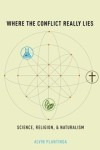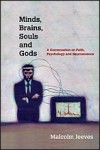This summer, we pioneered a new Summer Snapshot series that shared brief reflections from people in our network on their experience this summer. The series was so well received we've decided to expand it to other seasons. We're delighted to share this Fall Snapshot from an emerging scholar in psychology. Written a bit earlier this fall, this piece is deeply relevant as November busyness takes off. As an aspiring psychologist, I was recently in a training session that taught us how to validate clients' … [Read more...] about Fall Snapshot: Depending on Christ
psychology
Trouble in Mind: Attending to the Interplay of Mind and Body in Treating Depression
Psalm 139:13-14 (NASB): For You formed my inward parts; You wove me in my mother's womb. I will give thanks to You, for I am fearfully and wonderfully made; wonderful are Your works, and my soul knows it very well. Trouble in mind, I'm blue But I won't be blue always 'Cause I know the sun's gonna shine in my back door someday (composed by Richard M. Jones and first recorded in 1924) … [Read more...] about Trouble in Mind: Attending to the Interplay of Mind and Body in Treating Depression
Book Review: Where the Conflict Really Lies
Most people think there is a basic antagonism between faith and science that has to be overcome if one is to be both a theist and a scientific practitioner. Alvin Plantinga [1] says, au contraire. It is in fact the naturalist who has the real problem. In Where the Conflict Really Lies: Science, Religion, and Naturalism, Plantinga carefully works this out over 352 pages. He begins with the areas often thought to be in contradiction, in particular the questions of evolution and miracles, and demonstrates that in … [Read more...] about Book Review: Where the Conflict Really Lies
Can Science ‘Explain Away’ Religion?
In Chapter 18 of Minds, Brains, Souls and Gods: A Conversation on Faith, Psychology and Neuroscience (InterVarsity Press, 2013), Malcolm Jeeves[1] discusses the question “Can Science ‘Explain Away' Religion?” with his fictional psychology student "mentee". Have you wrestled with this question? How have you addressed it? Do you concur with what Jeeves offers? Can Science “Explain Away” Religion? Malcolm, Your emails have pointed out that the same evidence is often interpreted in very different ways. For example, … [Read more...] about Can Science ‘Explain Away’ Religion?
Time to discuss faith, psychology and neuroscience?
Preface Robert Boyle, illustrious scientist and Fellow of the Royal Society, described how, while in Geneva on a continental holiday, he underwent a conversion from nominal, unthinking Christianity to committed Christianity. As a result of his experiences, he stressed the need for Christians to have what he called an "examined faith." [1] John Stott, discussing Paul's letter to the Christians in Philippi, drew attention to the importance for all Christians to heed the apostle's exhortation to "contend for the faith … [Read more...] about Time to discuss faith, psychology and neuroscience?



